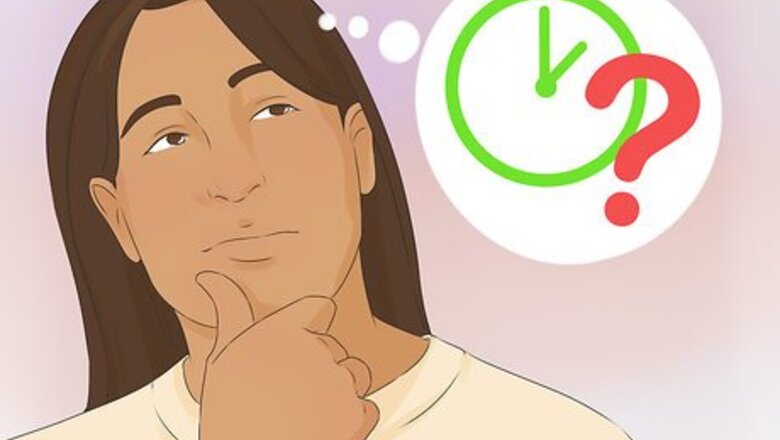
views
X
Research source
If you recognize signs of puberty in your child before they're 8 or 9, take them to a doctor to determine whether treatment would benefit them.
Looking for Physical Signs

Know when puberty typically starts. For girls, puberty typically starts between eight and thirteen years old; boys tend to start between nine and fourteen.\ Anything before this is considered early puberty and needs a doctor's attention. Precocious puberty is more likely to occur in girls, or in those who are African-American or Hispanic. Other risk factors include obesity, exposure to radiation therapy or external hormones (e.g. coming into contact with an adult's estrogen or testosterone gels), or another medical condition (such as thyroid problems or McCune-Albright Syndrome).Did You Know? While some cases of early puberty are caused by external factors, most cases have no obvious trigger.
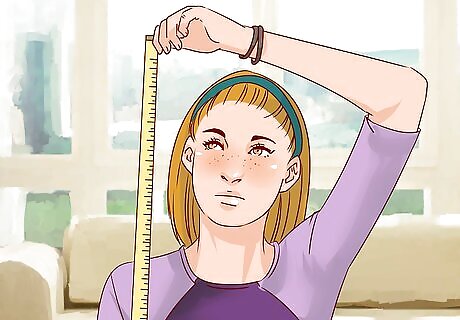
Take note of unusual growth spurts. While growth spurts are quite normal in children, it's not typical for younger children to be towering above their classmates. Prepubescent children grow about 2.5 inches (6.4 cm) per year, on average; if your child seems to be shooting up in height over a short period of time, that could be a sign of early puberty. If it occurs at a young age, early puberty can cause children to stop growing before their peers. This can result in reduced adult height.
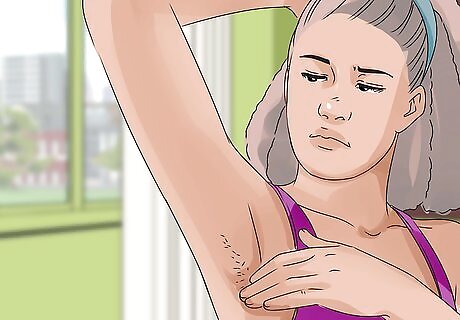
Check for early development of body hair. One of the first visible signs of puberty is the development of pubic hair, which is usually followed by underarm hair. After that, they may begin developing thicker or more noticeable hair on their legs, face, or other body parts (like their arms or chest). A young child who's developing an excessive amount of pubic or underarm hair, or is developing hair on their legs or face, should be seen by their doctor. Some children get very thin or wispy pubic or underarm hair early on. It's not necessarily a sign of precocious puberty on its own, but you should discuss it with your pediatrician, especially if the hair thickens.
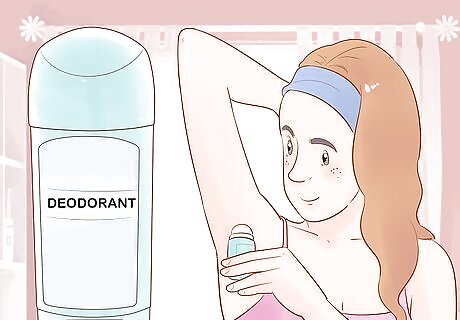
Sniff out body odor. One unisex sign of puberty is strong body odor that resembles teen or adult body odor. It is not typical for younger children to have body odor when they sweat. If your child seems to already need deodorant at an early age, keep an eye out for other signs of puberty as a precaution. Some children develop body odor early on, but then don't show other signs of puberty until the typical age. Talk to your pediatrician if you're concerned.
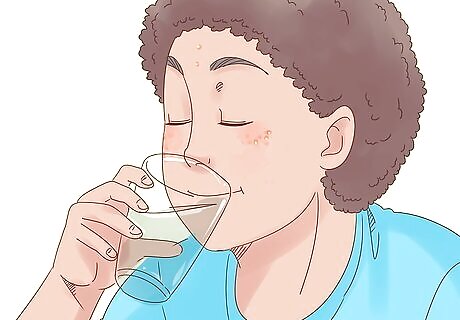
Acknowledge acne. Acne usually increases during puberty, due to increased oil production from the sebaceous glands. While acne can occur at any age, it's not typical for children to get excessive amounts of it. Increased acne in your child is cause to suspect early puberty, especially if they're showing other signs, too.
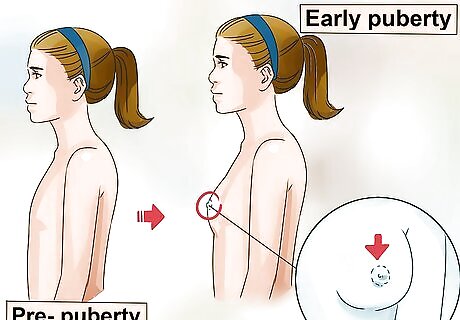
Note early breast development. Breast development is a good indication that puberty has started, but it doesn't typically start before age eight at earliest; anything earlier is precocious puberty. You may notice that your child is developing breast buds already and may be growing out of their shirts, or they might complain of soreness or pain in the breasts or nipples.
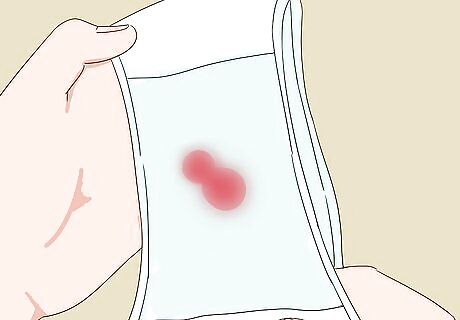
Look for periods before eight years old. Menstruation starts at 12 on average, though it can start as early as nine and still be considered normal. However, spotting or periods at age eight or younger are a surefire indicator of early puberty. If your child is experiencing spotting or periods at a young age, make an appointment with their doctor. You may notice vaginal discharge in their underwear when you do the laundry, even if they haven't started their period yet. This should also be viewed as a sign of puberty.
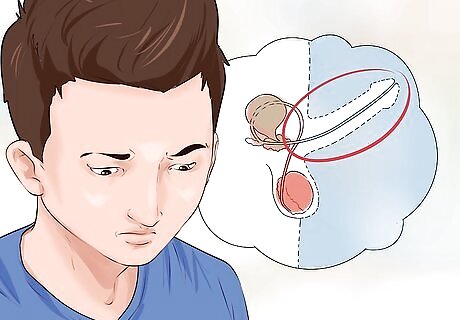
Be aware of early testicle or penile development. The testicles and penis don't grow very much prior to puberty. However, a sudden increase in size of these organs at a young age can indicate that your child may be developing sooner than they should be. Frequent and obvious erections, or even ejaculation or wet dreams, are a definite sign of puberty.
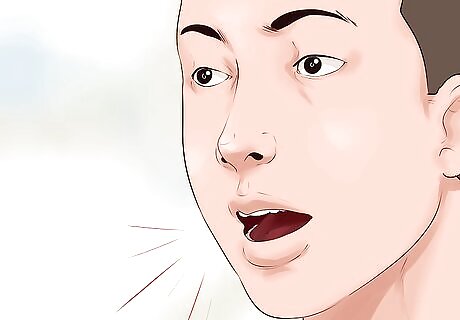
Listen for a deepening voice. Young children don't experience dramatic changes in their voices. However, a rapidly-deepening voice can be a sign of puberty, as well as the characteristic "voice cracking". A young child going through precocious puberty might have a voice that sounds more like a teenager's. Their Adam's apple may become more visible as their voice deepens.
Recognizing Emotional Signs
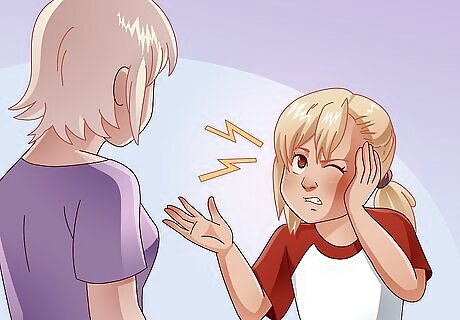
Pay attention to mood swings. Like in typical puberty, a child who's entered early puberty may have mood swings that seem unpredictable and sometimes unwarranted. Switching emotions rapidly for little to no reason or reacting strongly to small things can indicate early puberty, particularly when combined with physical signs of puberty. Irritability and mood swings can also be signs of mental health conditions like depression or bipolar disorder, so take care to distinguish puberty mood swings from a childhood mental health condition.
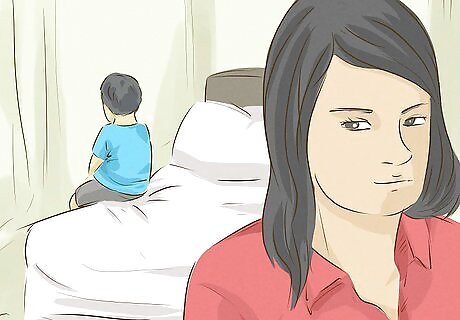
Be alert for a sudden interest in sex. It's normal for school-age children to show curiosity about bodies, puberty, or where babies come from, and they may masturbate occasionally. However, increased sexual behavior or a seeming focus on sex can be a sign of precocious puberty, particularly in boys. Be alert for signs like: Increased questions about sex More frequent masturbation Dressing in an age-inappropriate way Looking at pornographic material Engaging in sexual acts with other peopleWarning: Some children may engage in age-inappropriate sexual activity if they've been sexually abused. If your child's sexual behavior is not typical for their age, contact a doctor.
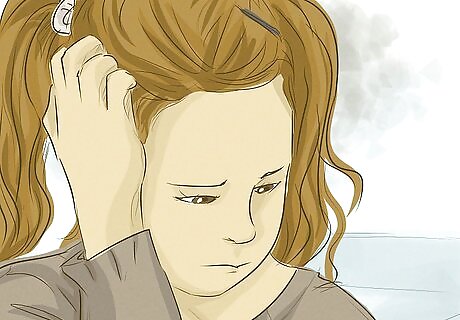
Spot low self-esteem. Children who start puberty early may feel embarrassed or ashamed of looking different than their peers, or be bullied by their classmates. They might find it difficult to share these feelings with others, whether it be parents or friends. All of this can have an effect on self-esteem. Low self-esteem in kids might look like: Trouble taking compliments or criticism; seeming "too sensitive" Frequent self-criticism or negative self-talk (e.g. "I'm so stupid! I can't do this!") Being easily influenced by negative behavior Being extremely controlling and demanding Avoiding friends or activities they used to participate in Placing blame on others
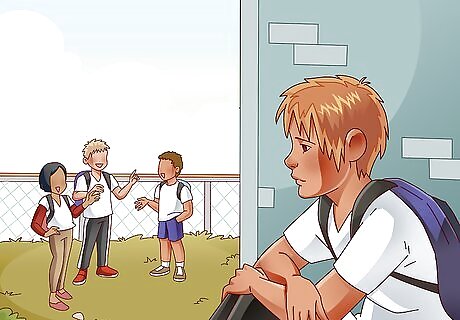
Be aware of social difficulties. Many children who go through early puberty to have difficulties with their peers, such as being bullied or struggling to fit in. They may also begin spending more time with those who are older than them, or who are more prone to trying out harmful substances or sexual activity. Consider whether their circle of friends has changed dramatically recently, or if they're spending a lot of time with people older than them.
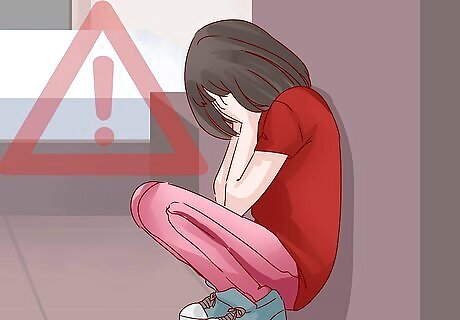
Note signs of poor mental health. Children who experience early puberty are at increased risk for a mental health issue, such as depression, anxiety, increased aggression, or eating disorders. If your child is showing signs of a mental health condition, seek help from a doctor immediately. Signs of mental health issues include: Withdrawing from family and peers Getting poor grades Sleeping too much or too little Refusing to eat, developing odd eating rituals, or eating too much Refusing to go to school. They may outright skip school or fake sick to avoid going. Dramatic changes in behavior (e.g. a quiet child suddenly becoming aggressive) Use of substances, like alcohol or drugs Self-injury, suicidal ideation, or suicidal intentDid You Know? Mental health struggles can manifest differently based on gender. Withdrawing and disordered eating patterns are more common in girls, while boys are more likely to become aggressive and turn to substances.
Helping Your Child
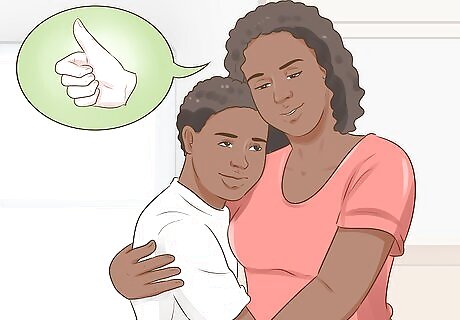
Be supportive. You might be frustrated with or worried about your child, but kids going through early puberty are likely self-conscious and embarrassed or afraid. They need support, not judgement or punishment. Focus on validating their feelings and showing empathy for them. Try to see things through your child's perspective. What does your child need from you right now? Your child isn't ready for the responsibilities, independence, or even activities that a preteen is. Encourage activities and responsibilities based on what's best for a child their age, not how old they look.
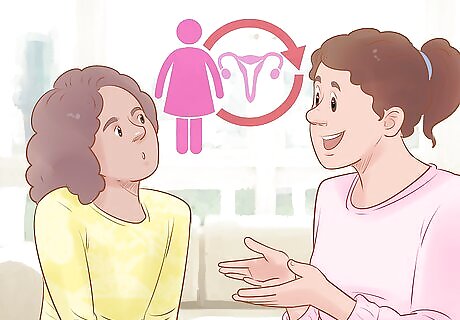
Discuss your child's changes with them. Especially if your child hasn't learned about puberty yet, you'll want to make sure that they know that their body changing is normal (even if it's early). Talking about your child's development neutrally (without acting as though it's shameful or embarrassing) will help them know that what they're going through is normal, and that it's okay to come to you about it. Some examples include: "It's normal to need to wear deodorant. You just need it a little earlier than your friends, and that's okay." "Lots of people need to wear bras. Your body is changing, and everyone else's will, too." "You had a wet dream. Lots of people have those. It's okay." "You're not 'losing your mind'. You're just feeling emotional, and that's normal. You can talk to me whenever you need to." Consider buying books on puberty that they can look through. Tip: While discussions should be age-appropriate, it's important to use correct terminology for body parts (e.g. "vulva" or "penis" instead of "privates" or "weewee"). This will normalize having discussions and using the terms.
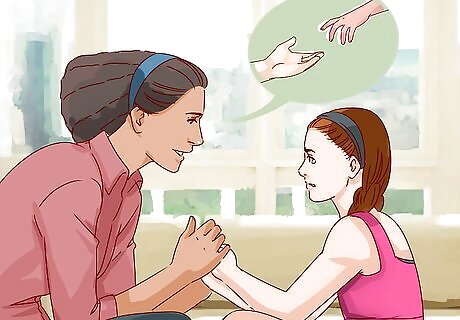
Help your child cope with puberty. Puberty is tough, especially for kids who start earlier than their peers - they might feel like they stand out, in addition to all the physical and emotional changes they're already going through. That being said, you can make sure your child doesn't have to go through this alone. Supporting your child and being there for them is important during this time. Listen to them when they want to talk or have questions. Buy them clothes that they feel comfortable in. Encourage your child to stick with activities they enjoy. (If they suddenly want to quit something, try to figure out why - for instance, a child who wants to quit sports might be body-conscious, which can be worked around.) Help them script responses to questions about their body (e.g. responding to "Why are you so tall?" with "I just grew faster"). Consider telling your child about your own experiences with puberty. Compliment your child's appearance if they say something negative about how they look. (However, don't constantly point out their changes.) Foster positive self-esteem by praising what they can do, and not focusing on how they look. Consider therapy if your child is struggling.
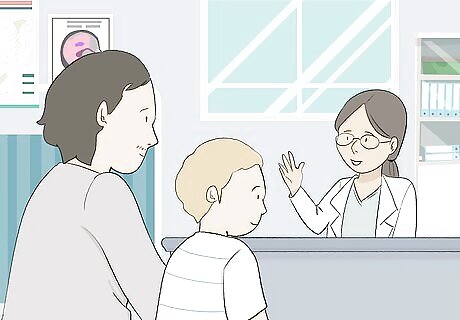
Talk to your child's doctor. If your child is going through precocious puberty, it's important for them to get a checkup from their doctor. The doctor can run tests to see if there's a determinable cause for their early development, and may medically slow down puberty depending on the circumstances. They can also help explain puberty to your child, and can refer you to any necessary medical specialists that your child may need.




















Comments
0 comment